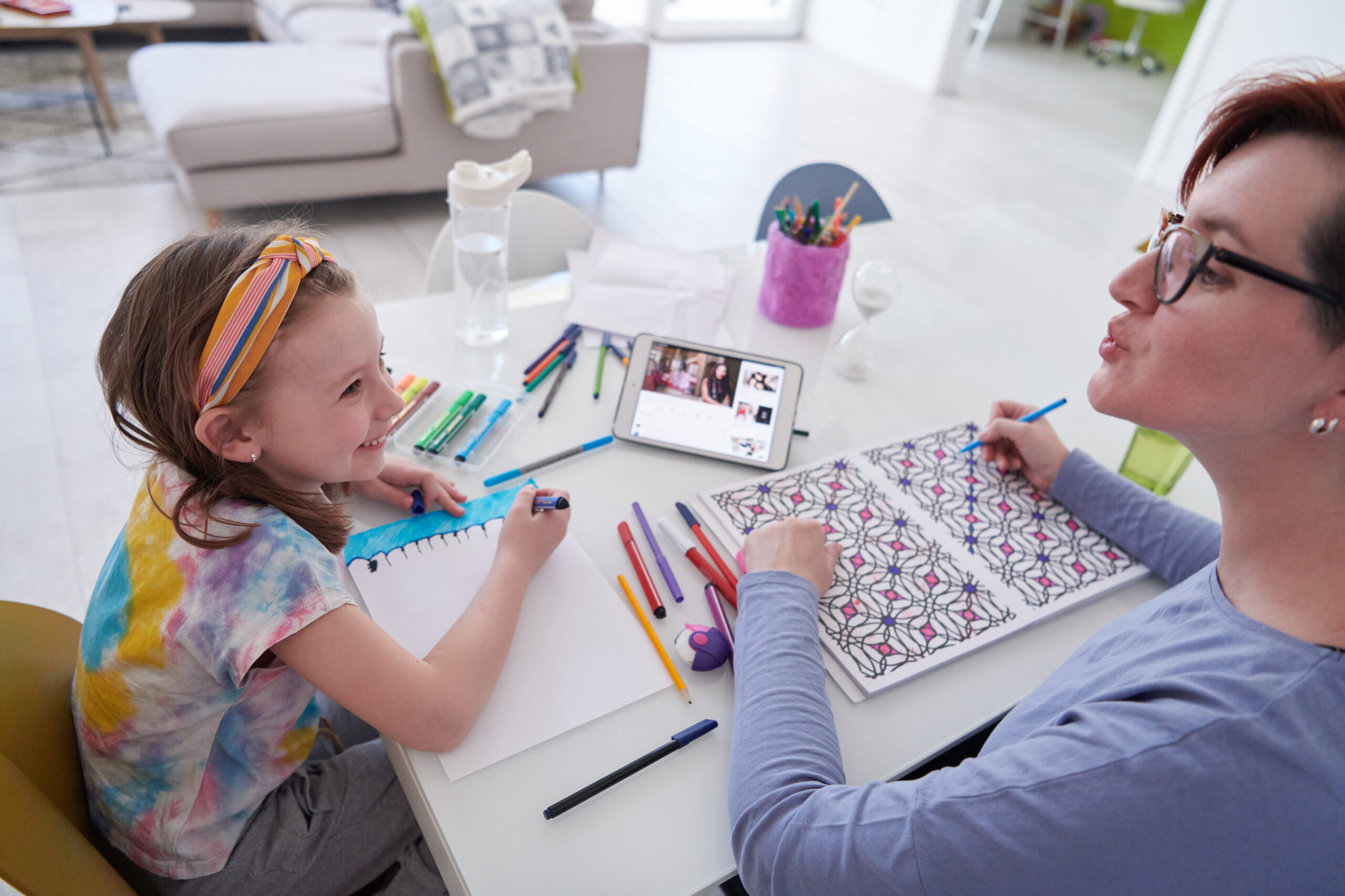Helping your child build strong speech and language skills doesn’t require expensive tools or complicated programs. In fact, some of the most effective strategies happen right at home through everyday moments and play! There are many simple activities you can do that will make a big difference in your child’s communication skills.
Here are eight simple, playful activities that will help support your child’s speech development, all using what you already have at home.
Listen to Music and Sing Songs
Music is a fun and powerful way to build speech and language skills. Songs with rhyming words, repeated phrases, and predictable rhythms help children learn new vocabulary, improve their memory, and develop their listening skills.
Try this: Sing familiar songs like “Old MacDonald,” “Wheels on the Bus,” or the alphabet song. As your child gets older and learns the words, you can pause before the last word in a line and let them fill it in (“Twinkle, twinkle, little… [star]!”).
Read Books Together
Reading with your child supports their vocabulary growth, language comprehension, and expressive speech. It also helps them learn how stories work and introduces them to the rhythm of language.
Try this: Read simple picture books and talk about what you see on each page. Ask open-ended questions like, “What do you think will happen next?” or “How does the bunny feel?”
Model Correct Language and Conversations
Children learn by example. When you model clear, age-appropriate language in daily conversations, you help your child hear how sentences are formed and how words are used.
Try this: If your child says, “Dog run,” you can respond with, “Yes, the dog is running!” Gently repeat and expand what they say to build their vocabulary and sentence length.
Encourage Speech Through Play and Imitation
Playtime is the perfect opportunity for language learning. When you play alongside your child, you can name objects, describe actions, and model sounds.
Try this: Play pretend with dolls, stuffed animals, or toy cars. Narrate the actions (“The car is going fast! Vroom!”) and take turns making sounds or voices for characters.
Use Repetitive Phrases
Repetition helps reinforce words and concepts, which makes it easier for your child to remember and use them.
Try this: Use the same phrases during routines. Say things like, “Time to eat! Let’s wash our hands,” every day before meals, or “All done!” when playtime is over. The consistency helps the words stick.
Offer Choices for Snacks and Activities
Giving choices encourages children to use their words to tell you their preferences, which helps build their expressive language skills.
Try this: Instead of asking yes-or-no questions, offer two options: “Do you want apples or bananas?” or “Should we play with blocks or puzzles?” This gives your child a reason to respond and practice using words.
Learn Baby Sign Language
Using simple baby signs alongside spoken words can reduce early frustration and help your baby express themselves before they can even talk! It also supports early vocabulary development.
Try this: Start with common signs like “more,” “all done,” “milk,” and “eat.” Always say the word as you sign it to help your child connect the gesture with the spoken language.
Limit Screen Time and Pacifier Use
Too much screen time or extended pacifier use can interfere with speech and language development. Kids learn to talk by interacting with people, not by watching a screen.
Similarly, using a pacifier too often or for too long can actually alter the shape of your child’s mouth (their jaw, teeth, and even the roof of their mouth). This can make it more difficult for them to move their lips and tongue to make specific speech sounds as they grow.
Try this: Create screen-free times during meals and play. Avoid using pacifiers unless absolutely necessary, and encourage more face-to-face time with songs, books, and conversation.
Reach Out to Let’s Communicate for Expert Advice
If you have questions about your child’s speech or feel like something isn’t quite right, don’t wait to get support. Early intervention can make a big difference!
Call Let’s Communicate today at (678) 963-0694 to schedule a speech and language evaluation. We’re here to help your child grow with confidence.


